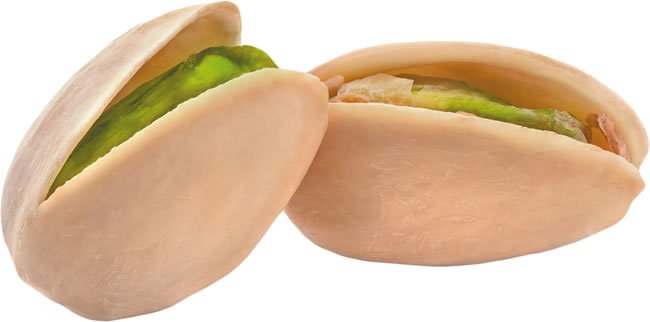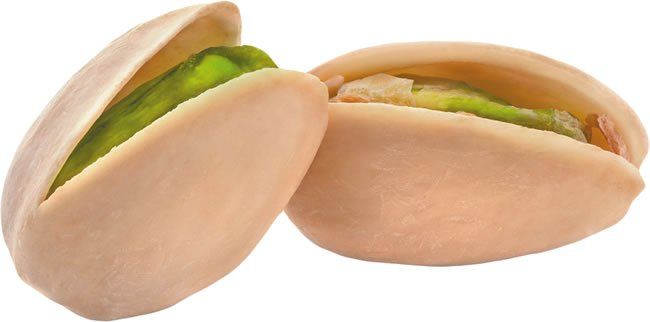A new clinical trial and a review of the evidence both suggest eating tree nuts may help fight diabetes. Tree nuts include walnuts, hazelnuts, almonds, Brazil nuts, cashews, pecans, pine nuts, macadamias and pistachios. One study reported that pistachios improved markers of blood sugar and inflammation in people at risk for diabetes, while the second concluded that tree nuts of various types contribute to better glycemic control in patients already diagnosed with type 2 diabetes.
“The positive results of these two studies extend the growing body of evidence that tree nut consumption is beneficial to fend off diabetes and helpful in blood glucose control in diabetic patients,” says Oliver Chen, PhD, a scientist in Tufts’ HNRCA Antioxidants Research Laboratory, an expert on the health benefits of nuts. “However, more research should be conducted to substantiate whether all tree nuts confer similar effects.”
Image: Thinkstock

PISTACHIO PREVENTION: In the new clinical trial, published in Diabetes Care, Spanish researchers tested the effects of about two ounces (57 grams) of pistachios daily in a group of 54 adults with prediabetes. That condition, characterized by borderline high blood sugar levels, progresses to diabetes in 15-30% of patients within five years. The study randomly assigned half the participants to consume a daily handful of pistachios. A control group added olive oil and other fats to their diets instead to keep total calories the same between the groups.
After four months, participants who consumed pistachios showed significant reductions in blood sugar and insulin levels, protection of unhealthy LDL cholesterol against oxidation (which makes it more dangerous), and drops in some markers of inflammation. Neither group saw a significant weight change.
Although pistachios were used in the study, which received funding from the American Pistachio Growers association, researchers speculated that other nuts would have a similar effect. They also cautioned that because nuts are a concentrated energy source, it’s important to substitute nuts for other foods in your diet to keep from adding calories.
BLOOD-SUGAR BENEFITS: The second study, said to be the first of its kind, pooled results from 12 prior clinical trials of tree nuts in patients with type 2 diabetes, totaling 450 participants. The team of researchers from several Canadian universities looked at studies including almonds, hazelnuts, Brazil nuts and cashews. The average intake of nuts in the studies was about two ounces (56 grams).
Diets emphasizing tree nuts were associated with significantly lower levels of fasting glucose and of HbA1c, a measure of blood sugar level over time. Participants consuming nuts also had positive trends in fasting insulin and HOMA-IR, a measure of insulin resistance, but these did not reach statistical significance.
Publishing their findings in PLOS One, the researchers concluded, “Pooled analyses show that tree nuts improve glycemic control in individuals with type 2 diabetes, supporting their inclusion in a healthy diet.” They cautioned, however, that the trials they analyzed were of short duration—an average of eight weeks—and of lower quality.
They also emphasized the importance of substituting nuts into your diet. One explanation for nuts’ blood-sugar benefits, they speculated, might be that nuts high in healthy fats and low in carbohydrates replace carbohydrates with a higher glycemic load (a measure of how rapidly a food boosts blood sugar). Nuts might thereby lower the overall glycemic load of the diet.
A two-ounce serving of roasted pistachios, like that used in one of the new studies described here, contains:- 321 calories
-11.9 grams of protein
-5.6 grams of fiber
-16.7 grams total carbohydrates
– 571 milligrams of potassium (Click link below for more about the health benefits of potassium)
– 21 grams of unsaturated fat
– 3 grams of saturated fat
– no cholesterol
























